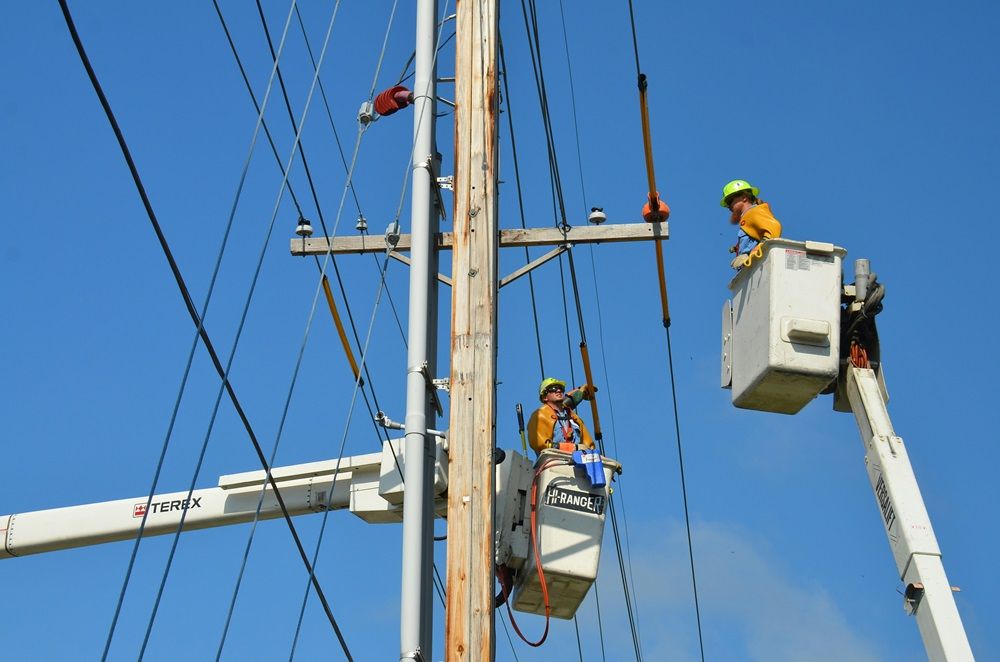Ever wondered how electrical engineers focus their skills in diverse areas to drive innovation? Electrical engineering is a vast field with numerous specialisations, each catering to specific aspects of technology and infrastructure. In South Africa, the demand for specialised electrical engineers is growing as industries advance and technological needs become more complex. This article explores various specialisations in this type of engineering, helping you understand their unique roles and career prospects.
Specialisations in Electrical Engineering offer a wide range of career paths, each with unique responsibilities and expertise. Whether you’re interested in power systems, electronics, or telecommunications, understanding these specialisations is crucial for aspiring electrical engineers. In South Africa, the growing demand for skilled professionals in various sectors makes it essential to choose the right path. Job Mail can help you explore opportunities and find the perfect role to match your interests and skills.
 Photo by American Public Power Association on Unsplash
Photo by American Public Power Association on Unsplash
Different Specialisations in Electrical Engineering
1. Power Systems Engineering
Power systems engineering focuses on the generation, transmission, and distribution of electrical power. Engineers in this field design and manage electrical grids, ensuring that power is delivered efficiently and reliably. In South Africa, with ongoing infrastructure development and energy challenges, power systems engineers play a critical role in maintaining and improving the national grid.
Key Responsibilities:
- Designing electrical power systems and components.
- Managing the distribution of electricity.
- Ensuring compliance with safety and regulatory standards.
Career Opportunities:
- Power utilities
- Renewable energy companies
- Government agencies
2. Electronics Engineering
Electronics engineering deals with the design and development of electronic circuits and devices. This specialisation covers a broad range of technologies, from consumer electronics to industrial automation. These engineers are responsible for creating and improving gadgets like smartphones, medical devices, and home appliances.
Key Responsibilities:
- Designing and testing electronic circuits.
- Developing new electronic devices.
- Integrating electronic systems into various applications.
Career Opportunities:
- Consumer electronics manufacturers
- Telecommunications companies
- Research and development labs
3. Telecommunications Engineering
Telecommunications engineering involves the design and management of communication systems, including telephone networks, satellite communications, and internet infrastructure. With the rise of digital communication and data transfer, this specialisation is crucial for ensuring connectivity and network efficiency.
Key Responsibilities:
- Designing and optimising communication networks.
- Implementing and maintaining telecommunications systems.
- Analysing network performance and resolving issues.
Career Opportunities:
- Telecom service providers
- Network equipment manufacturers
- IT consulting firms
 Photo by Shirish Suwal on Unsplash
Photo by Shirish Suwal on Unsplash
4. Control Systems Engineering
Control systems engineering focuses on the design and implementation of systems that control industrial processes and machinery. This field is essential for automating operations and improving efficiency in manufacturing and production.
Key Responsibilities:
- Designing control systems for machinery and processes.
- Programming and calibrating control systems.
- Monitoring and optimising system performance.
Career Opportunities:
- Manufacturing companies
- Automation firms
- Industrial control system developers
5. Instrumentation Engineering
Instrumentation engineering involves the development and maintenance of instruments and devices used for measuring and controlling physical quantities like temperature, pressure, and flow. This specialisation is vital for ensuring accurate data collection and system monitoring.
Key Responsibilities:
- Designing and calibrating measurement instruments.
- Implementing control systems for data acquisition.
- Analysing instrument performance and accuracy.
Career Opportunities:
- Process industries
- Research institutions
- Instrumentation manufacturers
6. Renewable Energy Engineering
With the global shift towards sustainable energy sources, renewable energy engineering has become increasingly important. This field focuses on designing and implementing systems for harnessing energy from renewable sources like solar, wind, and hydroelectric power.
Key Responsibilities:
- Developing renewable energy systems and technologies.
- Conducting feasibility studies and performance assessments.
- Managing renewable energy projects and installations.
Career Opportunities:
- Renewable energy companies
- Environmental consultancy firms
- Government and non-governmental organisations
Choosing the right specialisation in electrical engineering can significantly impact your career trajectory. Each field, from power systems to renewable energy, offers unique opportunities and challenges. By understanding these different specialisations, you can better align your skills and interests with industry needs. To explore job opportunities and find the perfect role for you, visit Job Mail today.
Read Related Articles
- Key Skills and Qualifications for Aspiring Engineers
- Preparing for Electrical Engineering Job Interviews
- Key Required Skills for Electrical Engineering Jobs in South Africa
- How to Write an Effective Engineering CV
- Top Electrical Engineering Qualifications and Certifications
- How to Build a Strong Resume for Electrical Engineering Positions
- Networking Tips for Electrical Engineering Professionals
- Common Challenges in Electrical Engineering and How to Overcome Them
- Internship and Entry-Level Opportunities in Electrical Engineering
- Top Engineering Specialisations and Their Job Prospects
- How to Tailor Your Job Application for Different Engineering Fields





